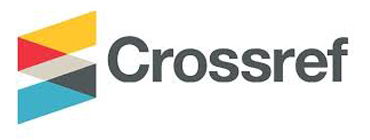AN ANALYSIS ON TEACHERS' IDENTITY REPRESENTATIONS ON INSTAGRAM
Abstract
The teaching profession has been seen as a highly respected job title in some developed countries for bringing significant impacts on the country’s national growth. It is, therefore, teachers are often illustrated into some animations, videos, or pictures on websites and other internet sources. This research aimed to investigate how teachers’ identity is represented on Instagram. 10 Instagram posts related to this issue with the help of Instagram hashtag about #teacherlife were used as the data to get the finding. This research applied the theory and method of Critical Discourse Analysis (CDA) with the perspective of multimodal discourse analysis and social semiotics. The data were analyzed using the sign model of Saussure. Initial coding was also used to analyze the data. After that, the data were then thematized to categorize the data analysis results. The findings of this study revealed that teachers’ identity represented on Instagram provides meaningful insights and offers rich perspectives. It was evident that many ideas of teachers’ identity are against the teachers’ expectations. Four major themes were revealed; they are the teachers’ responsibility, teachers’ commitment, teachers’ authority, and teachers’ needs for recognition. Furthermore, as identity is affected by a significant number of factors, different contexts of teachers may have different identities.
Full Text:
PDFReferences
Anspal, Tiina, Eve Eisenschmidt, and Erika Löfström. 2012. “Finding Myself as a Teacher: Exploring the Shaping of Teacher Identities through Student Teachers’ Narratives.” Teachers and Teaching 18 (2): 197–216. https://doi.org/https://doi.org/10.1080/13540602.2012.632268.
Becker, D. 2017. “Instagram as a Potential Platform for Alternative Visual Culture in South Africa.” In Media Image in the 21st Century, edited by M. Bunce, S. Franks, and C. Paterson, 102–12. London: Routledge.
Beltman, Susan, Christine Glass, Judith Dinham, Beryl Chalkand, and Bich Nguyen. 2015. “Drawing Identity: Beginning Pre-Service Teachers’ Professional Identities.” Issues in Educational Research 25 (3): 225–45.
Gündüz, Ugur. 2017. “The Effect of Social Media on Identity Construction.” Mediterranean Journal of Social Sciences 8 (5): 85–92. https://doi.org/https://doi.org/10.1515/mjss-2017-0026.
Izadinia, Mahsa. 2015. “A Closer Look at the Role of Mentor Teachers in Shaping Pre-Service Teachers’ Professional Identity.” Teaching and Teacher Education 52: 1–10.
Karabay, Aysegul. 2016. “An Investigation of Prospective Teachers’ Views Regarding Teacher Identity via Metaphors.” Eurasian Journal of Educational Research 16 (55): 1–35.
https://doi.org/https://doi.org/10.14689/ejer.2016.65.01.
Khalid, Fariza. 2015. “The Dimensions of Identities and Its Roles in Shaping Teachers’ Effectiveness.” Mediterranean Journal of Social Sciences 6 (3): 306–14. https://doi.org/https://doi.org/10.5901/mjss.2015.v6n3s1p306.
Lee, Jung Eun, and Brandi Watkins. 2016. “YouTube Vloggers’ Influence on Consumer Luxury Brand Perceptions and Intentions.” Journal of Business Research 69 (12): 1–8. https://doi.org/10.1016/j.jbusres.2016.04.171.
Macey, David. 2000. The Penguin Dictionary of Critical Theory. New York: Penguin.
Mirsarraf, Mohammadreza, Hamidreza Shairi, and Abotorab Ahmadpanah. 2017. “Social Semiotic Aspects of Instagram Social Network.” In 2017 IEEE International Conference on Innovations in Intelligent Systems and Applications (INISTA), 460–465. Gdynia: IEEE.
Ó’Gallchóir, Ciaran, Joanne O’Flaherty, and Carmel Hinchion. 2018. “Identity Development: What I Notice about Myself as a Teacher.” European Journal of Teacher Education 41 (2): 138–56. https://doi.org/https://doi.org/10.1080/02619768.2017.1416087.
O’Halloran, Kay, Sabine Tan, Bradley Smith, and Alexey Podlasov. 2011. “Multimodal Analysis within an Interactive Software Environment: Critical Discourse Perspectives.” Critical Discourse Studies 8 (2): 109–25.
Pennington, Martha C., and Jack C. Richards. 2016. “Teacher Identity in Language Teaching: Integrating Personal, Contextual, and Professional Factors.” RELC Journal 47 (1): 5–23.
https://doi.org/https://doi.org/10.1177/0033688216631219.
Ratnasari, Dwi, Didin Nuruddin Hidayat, A. Alek, and M. Defianty. 2019. “Interpersonal Meaning Analysis of Indonesian Politicians ’ Instagram Captions.” In Advances in Social Science, Education and Humanities Research, 222–30. Atlantis Press.
Reilly, Katie. 2018. “‘I Work 3 Jobs And Donate Blood Plasma to Pay the Bills.’ This Is What It’s Like to Be a Teacher in America,” September 2018.
Verhellen, Yann, N Dens, and Patrick De Pelsmacker. 2000. “Consumer Responses to Brands Placed in YouTube Movies: The Effect of Prominence and Endorser Expertise.” Journal of Electronic Commerce Research 14 (4): 287–303.
DOI: http://dx.doi.org/10.30829/tar.v27i1.627
Refbacks
- There are currently no refbacks.

Jurnal Tarbiyah by UIN Sumatera Utara Medan is licensed under a Creative Commons Attribution-NonCommercial-ShareAlike 4.0 International License.
Based on a work at http://jurnaltarbiyah.uinsu.ac.id/index.php/tarbiyah.
Permissions beyond the scope of this license may be available at http://jurnaltarbiyah.uinsu.ac.id/index.php/tarbiyah/about/submissions#copyrightNotice.
















